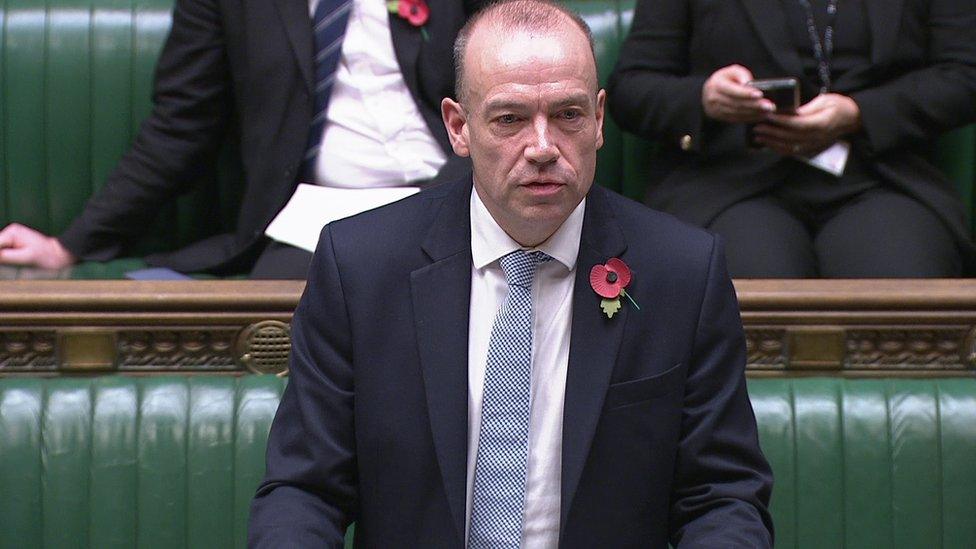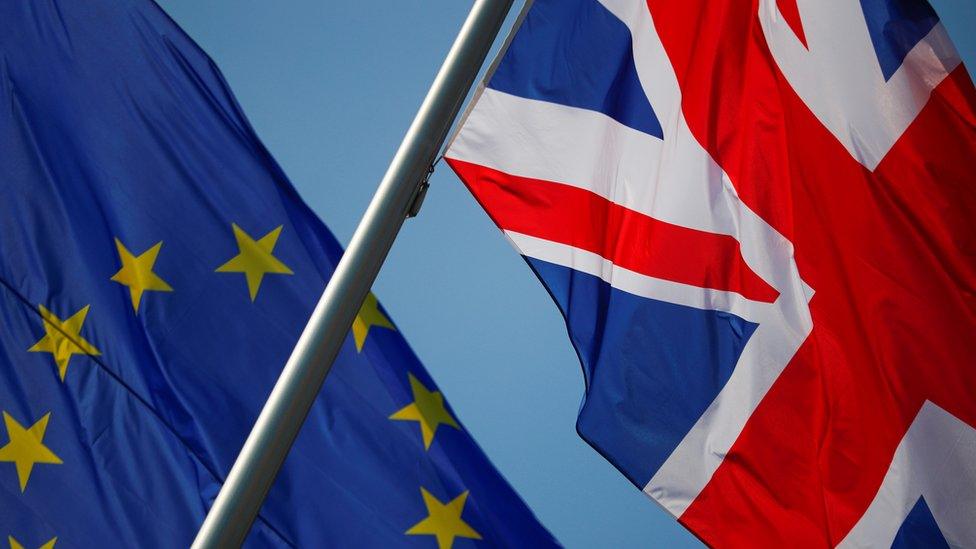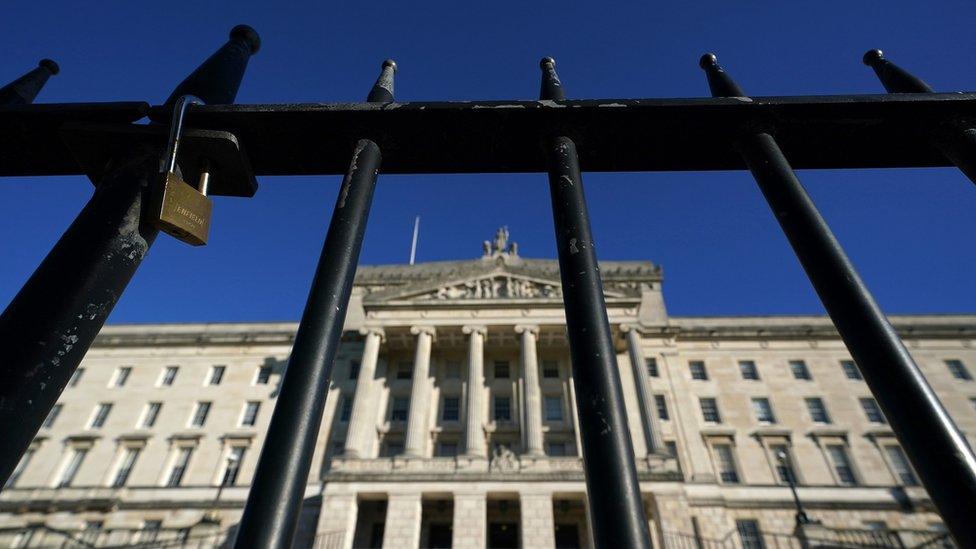Stormont election: MLAs pay a penalty for impasse
- Published

Chris Heaton-Harris told MPs he plans to bring forward legislation to reduce the salaries by 27.5%
Faced with a deadlock he could not break, the Northern Ireland Secretary and part-time referee opted for a chunk of extra-time and a penalty for our politicians.
It was, in the end, the only call Chris Heaton-Harris could make after he blinked first in his stand-off with the Democratic Unionist Party (DUP).
Though he remains the man in the middle he has lost much of his authority.
After his climbdown last week when ruling out a pre-Christmas election, the secretary of state has now completed his U-turn by ditching the current 12-week window for a poll to take place.
Instead, he will now legislate for a "short, straightforward extension" to allow more time for the crisis to be resolved.
This marks a departure from the New Decade, New Approach deal agreed by the parties and both governments, as there was no provision for extra-time.
'Out of his control'
As we know in Northern Ireland, move a deadline once and it is likely to move again. Nothing is set in stone.
That is the challenge for the secretary of state as the process is outside of his control.
It will be for the UK and EU negotiators to come up with a protocol deal which may or may not break the current Stormont deadlock.
We now have two more deadlines in the mix - one in December and one in January - which if not met, could result in an election in March or April.
It is far from straightforward.
There is another deadline though which is likely to carry more weight and that's 10 April - the 25th Anniversary of the Good Friday Agreement.
That is the date uppermost in the minds of those in Dublin, London, Brussels and Washington.
The prospect of celebrating a milestone for an agreement existing in name only, without the institutions it created, is not something those gathered would relish.
Expect a push before then between the UK and EU to get a deal agreed on the protocol in time for the Executive to be restored.
But for that to happen, the government and the DUP will have a big call to make.

London and Brussels have previously been talking up the potential for striking a deal in relation to the Northern Ireland Protocol
Will London sign up to an agreement which does not have the support of the DUP?
If it does, then where will that leave DUP leader Sir Jeffrey Donaldson, his party and the future of power-sharing?
'Hard man credentials'
By then, his MLAs (assembly members) and the others elected in May could be surviving on just over two thirds of their wages.
In a bid to restore his hard man credentials on the day he changed course, the secretary of state vowed to cut MLAs' salaries by 27.5%.
But there was no specific timeline and don't be surprised if that turns into yet another deadline before the legislation reaches the House of Commons.
The last time MLAs' salaries were cut in 2018, when Sinn Féin collapsed the institutions, the pay was restored when local parties agreed the New Decade, New Approach deal.
This time a resolution feels like it is beyond the reach of local parties.
Without a dramatic u-turn by the DUP it will be left in the hands of the UK and EU negotiating teams to break the deadlock.
Until then, Mr Heaton-Harris and the political teams he is trying to marshal can only watch from the side lines.
- Published9 November 2022

- Published4 November 2022
